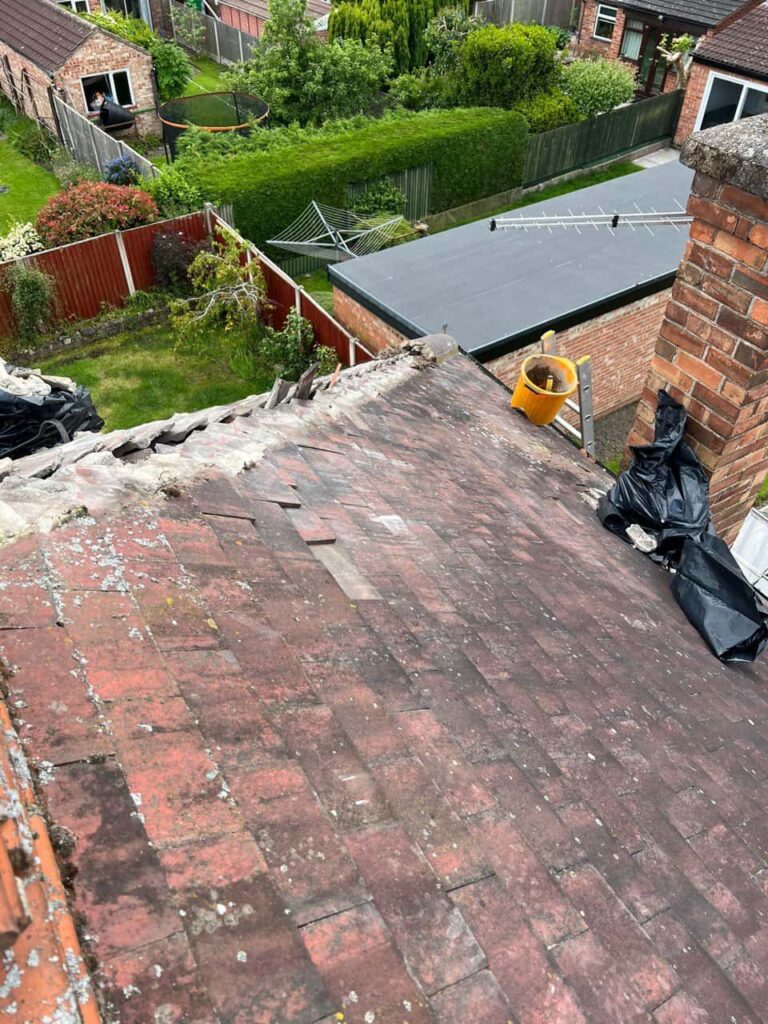Introduction
When it comes to protecting commercial properties, the roof is your first line of defence—and one of the most important yet often underestimated elements of that defence is leadwork. Whether you’re managing a retail unit, office building, or warehouse in March, Cambridgeshire, lead detailing on your commercial roof isn’t just a nice-to-have—it’s essential.
At March Roofing Repairs, we understand that business owners and property managers want reliability, minimal maintenance, and longevity. That’s why proper leadwork isn’t optional—it’s a cornerstone of any high-performance roofing system. In this article, we’ll explain why lead continues to be the go-to material for commercial roofing projects and what makes it a critical investment for any commercial property.
Key Takeaways
- Leadwork ensures watertight protection at key roof junctions
- It adapts well to thermal movement, ideal for large-scale roofs
- Long-lasting and low maintenance, saving money over time
- Essential for flat and pitched commercial roofs with complex detailing
The Role of Leadwork in Commercial Roofing
Lead is widely used in roofing for a reason—it’s durable, flexible, and incredibly effective at sealing areas where water would otherwise get in. On commercial buildings, where roofs often feature large surface areas, intricate junctions, vents, parapet walls and skylights, having proper lead flashings and detailing is absolutely essential.
Without leadwork, these high-risk areas are vulnerable to water ingress, which can damage insulation, disrupt business operations, and lead to costly structural repairs.
Built for Movement: Why Lead Excels in Commercial Settings
Commercial roofs are often subject to significant thermal expansion and contraction, especially large flat or low-pitched roofs exposed to sun and wind. Inferior materials can crack, split or lift over time as they’re not built to move. Lead, however, expands and contracts with ease without losing its watertight integrity.
That’s why lead is the trusted solution for long-term durability in commercial roofing. Once installed correctly, it maintains its seal for decades, with minimal upkeep.
Where You’ll Find Lead on a Commercial Roof
In commercial settings, lead is commonly used for:
- Flashings around vents, skylights and service ducts
- Upstands on flat roofs where different materials meet
- Box gutters and valley details
- Abutments between pitched roofs and walls or parapets
- Cappings on parapet walls to prevent water seeping into the structure
Each of these areas is a potential weak point without lead protection.
A Long-Term Investment That Saves You Money
While lead may have a higher initial cost than synthetic alternatives, its longevity and reliability make it a cost-effective choice for commercial buildings. A well-installed lead detail can last upwards of 50 years—and often longer. That means less disruption from repairs, fewer call-outs, and fewer tenant complaints.
For businesses in March and throughout Cambridgeshire, this isn’t just about avoiding water damage—it’s about protecting the bottom line.
Don’t Compromise on Detail
In commercial roofing, it’s often the small details that cause the biggest issues. A poorly installed flashing can result in internal leaks, damp patches, and even damaged equipment or stock. Lead provides unmatched malleability and weather resistance, meaning it can be shaped around corners, upstands and curves with precision—and once in place, it stays put.
At March Roofing Repairs, we ensure every lead detail is expertly cut, dressed, and installed for maximum performance and longevity.
Conclusion
Leadwork on a commercial roof isn’t a luxury—it’s a necessity. Its unmatched durability, adaptability, and protective qualities make it the gold standard for sealing vulnerable roof areas and ensuring your building remains watertight, weatherproof, and structurally sound for the long haul.
If you’re managing or planning commercial roofing work in March or the wider Cambridgeshire area, don’t leave leadwork to chance. March Roofing Repairs provides expert leadwork solutions tailored to the demands of commercial properties. Get in touch with us today to safeguard your building with materials and workmanship that stand the test of time.
Call us on: 01354 707 496
Click here to find out more about March Roofing Repairs
Click here to complete our contact form and see how we can help with your roofing needs.

